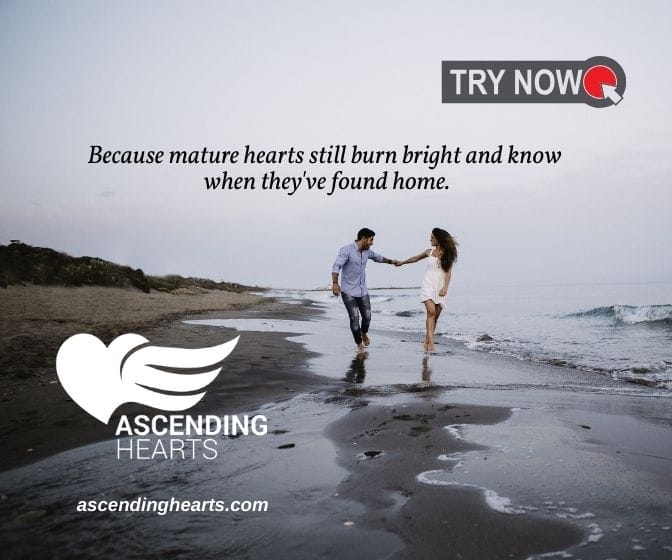Emotional Freedom – An Interview with Judith Orloff MD

In this interview, Judith Orloff, MD, discusses her new book, Emotional Freedom: Liberate Yourself from Negative Emotions and Transform Your Life.
An Interview with Judith Orloff, MD on her new book, Emotional Freedom
By Barbara Stahura
Judith Orloff, MD, is a psychiatrist and intuition expert who synthesizes the pearls of traditional medicine with cutting-edge knowledge of intuition, energy, and spirituality to create a new blend of healing wisdom. She passionately believes that the future of medicine depends upon integrating all these elements to achieve emotional freedom and total wellness. Her new book is Emotional Freedom: Liberate Yourself From Negative Emotions and Transform Your Life (Harmony Books, 2009).
Her earlier bestsellers are Positive Energy, Intuitive Healing, and Second Sight. As a teacher and author, she combines her personal story as someone who comes from a long line of intuitive healers, including her grandmother, mother, and aunts, with professional knowledge gleaned from her medical practice and popular workshops.
Dr. Orloff is an assistant clinical professor of psychiatry at UCLA and has been featured on The Today Show, CNN, Oprah Magazine, and USA Today. For more inspiration and information about her workshops and books, visit www.drjudithorloff.com. For Judith’s free video class on emotional freedom and intuition, check out www.youtube.com/judithorloffmd.
Barbara: Why did you write Emotional Freedom?
Judith Orloff MD: I’m passionate about teaching people to transform negative emotions into positive ones. If you get mired in the muck of negativity, you can’t lead a liberated, happy life. As a physician, I see that most people don’t have the everyday tools to transform frustration, depression, anxiety, worry, and fear into positive emotions. This book is a how-to guide that offers you these tools. I work in a mainstream medical system that doesn’t generally deal with emotions in an expanded way. As a UCLA psychiatric resident, I learned to prescribe medications and use traditional psychotherapy. In this book, I also bring spirituality, subtle energy, and intuition into this equation and offer strategies that go beyond mainstream medicine. Another powerful reason I wrote this book is that I watched my mother, a physician, literally, lose her life to stress and fear. I loved her more than anything, but I didn’t want to do the same thing to myself, as I have similar tendencies.
Barbara: What is emotional freedom, and why is it so important for individuals and our world today?
Judith Orloff MD: Emotional freedom is your ability to love by cultivating positive emotions and compassionately witnessing and transforming negative ones, whether yours or another’s. This skill liberates you from fear and lets you navigate adversity without attacking someone, losing your cool, or being derailed by negativity. With emotional freedom, you can choose to react constructively rather than relinquish command of the situation when your buttons get pushed (This book is unrelated to the tapping technique of the same name).
Barbara: What is the role of compassion in emotional freedom?
Judith Orloff MD: Compassion is key because unless you have self-compassion, it’s hard to heal difficult emotional states. When a loved one is going through a trying time, being compassionate without judging them is essential. My spiritual teacher says we progress on the spiritual path by beating ourselves up a little less each day. I believe that. It’s about baby steps.
Barbara: You say that emotions have four crucial components. What are they, and why is it vital to know about them?
Judith Orloff MD: To experience emotional freedom, it’s necessary to understand these four basic components of emotion: biology, spirituality, energy, and psychology. With fear, frustration, loneliness, worry, and more, the book teaches you to shift your biochemistry as well as your energy proactively, and to see the spiritual and psychological meaning of what you’re going through. This will give you all the tools you need to change.
Barbara: You believe that emotions are a path to spiritual awakening. Please explain.
Judith Orloff MD: I see difficult emotions as a laboratory for spiritual growth–whereas Traditional psychiatry often views them more as tormentors, something to get rid of. I believe that emotions come to us—even wrenching ones like depression—to awaken us spiritually. Each emotion is a prompt for us to get more in touch with our hearts and expand our light. This perspective really changes how you deal with all emotional challenges.
Barbara: How can emotional freedom help us not to absorb negative emotions from others?
Judith Orloff MD: Many sensitive people come to me, as patients and in workshops, who’ve been labeled “overly sensitive.” These people, including me, are what I call “emotional empaths.” Because we are so sensitive, we absorb the energy of others. We sense their fear, anxiety, and stress and take them into our bodies. Then we get exhausted or feel ill ourselves. As a child, I couldn’t go into shopping malls or crowded places because I’d walk in fine and then walk out exhausted or with some ache or pain I didn’t have before. I didn’t realize what was happening. I went to my mother, a physician, who said, “Oh, no, dear, you just don’t have a thick enough skin.” It’s not a good thing to tell an intuitive child! But as I’ve matured intuitively and as a physician, I’ve realized that people on a spiritual path tend to gain more sensitivity as they develop. Thus, they need to learn not to absorb outside energy to feel joyous and free. This book discusses being compassionate but staying centered without becoming an emotional sponge.
Barbara: When dealing with difficult personalities, losing our cool or attacking back is easy. How can Emotional Freedom teach us to cope in a calmer manner?
Judith Orloff MD: There’s a chapter on emotional vampires, which is my term for many difficult people—for instance, a criticizer, a victim, a narcissist, or a controller. I say, let them be our teachers rather than tormentors. We must ask ourselves: How do they teach us to communicate with more heart and better boundaries? How can we deal differently with feeling irritated, controlled, or insulted? The old way is to get nasty or withdraw. The new way is to not simply react when your buttons get pushed—a behavior that perpetuates war. Practice what I call “the namaste effect,” which is, ”I respect the spirit within you even if I don’t like what you’re doing.” Your victories over emotional vampires are not small—they’re huge. With every success, you are creating more hope for the world. From an intuitive standpoint, we are all interconnected: my emotional freedom affects your emotional freedom and affects everyone in the world.
Barbara: In the book, you also define four emotional types. What are they, and what can they tell us about ourselves?
Judith Orloff MD: They are “the intellectual,” “the empath,” “the gusher,” and “the rock.” These are the filters through which you see the world—the default setting of your personality to which you revert, especially under stress. Each type is determined by inborn temperament, upbringing, and perhaps karma. Since emotional freedom means being able to remain sensitive but centered in an overwhelming world, it’s essential to know your emotional type. Without this knowledge, many people dysfunctionally hunker down in their type for decades without examining which aspects do and don’t serve them.
Barbara: Your section of the book about sleep and dreams is fascinating. What can they teach us about emotional freedom?
Judith Orloff MD: Sleep and dreams are a conduit for emotional freedom. Sleep is a great awakener because your linear mind quiets down, and you enter a purely intuitive state where you can better understand your emotions and other realms. Dreams are revolutionary states of consciousness that impart intuitive wisdom about being free. Here’s a personal example. Once, I went through a period of complaining a lot when nothing was working. Projects were falling through, patients were canceling appointments, I couldn’t even get the plumber to come and fix the toilet. I was in victim mode. Then, I had a dream in which my deceased father came to me, and he was moving from one location to another. I asked, “Daddy, can I get you anything?” Smiling, he said, “No, darling, I don’t need anything except a pen and a piece of paper in case I want to write a thank-you note.” This was a wake-up call that highlighted the importance of gratefulness here and in the Hereafter. It was all I needed to adjust my attitude to be more grateful for my life.
Barbara: The world seems to get wackier and scarier every day. How can your book help us overcome fear during times of terrorism, economic turmoil, and natural disasters?
Judith Orloff MD: To be free, we must view fear as something to overcome, not something to be defeated by. When you see a world with so much to be afraid of—skyrocketing gas prices, the failing economy, and violence—you must choose not to come from fear. Part of emotional freedom is making a vow not to lead a fear-driven life. That must be a deep desire in your heart. Then, do everything possible to overcome fear and worry with faith in goodness and try to stay in the moment rather than catastrophizing the future. I’ll show you how to develop the courage to be centered and find non-fear-based solutions to anything! Courage or fear is a choice. It’s not something that just happens to you.
Barbara: I love that you say emotional freedom offers us opportunities to be heroes in our own lives. Would you elaborate?
Judith Orloff MD: Absolutely. If you suffer loss, if you’re having an anxiety attack, or feeling depressed or lonely—these are all very spiritual experiences to me. You become a hero in your own life as you learn to use emotions as a chance to become stronger, brighter, and more. This is critical on a personal level because it frees you from suffering. But it’s just as important on a collective level because if we don’t face the fear and anger in ourselves, then we risk projecting it onto a global sphere. This creates war and massive suffering for our human family. We must find inner peace before we can have outer peace. That’s why I consider emotional freedom an inner peace movement.
You will also enjoy The Insightful Dr. Judith Orloff and Judith Orloff: The Empath’s Survival Guide
Click HERE to Connect with your Daily Horoscope on OMTimes!
Visit Our Astrology Store for Personalized Reports
About Barbara Stahura
Barbara Stahura, a freelance writer in Tucson, Arizona, has interviewed many of the major transformative individuals of our time, including Louise Hay, Carolyn Myss, and Wayne Dyer. www.barbarastahura.com.
About Judith Orloff MD
Judith Orloff MD, a psychiatrist and intuition expert, is the author of the new book Emotional Freedom: Liberate Yourself From Negative Emotions and Transform Your Life (Harmony Books, 2009). Her other bestsellers are Positive Energy, Intuitive Healing, and Second Sight. Dr. Orloff synthesizes the pearls of traditional medicine with cutting-edge knowledge of intuition, energy, and spirituality. For more information, visit www.drjudithorloff.com. Barbara Stahura, a freelance writer in Tucson, Arizona, has interviewed many of the major transformative individuals of our time, including Louise Hay, Carolyn Myss, and Wayne Dyer. www.barbarastahura.com.
OMTimes is the premier Spiritually Conscious Magazine. Follow Us On Facebook, Twitter, Instagram, Linkedin, Pinterest, and Youtube
OMTimes Magazine is one of the leading on-line content providers of positivity, wellness and personal empowerment. OMTimes Magazine - Co-Creating a More Conscious Reality






